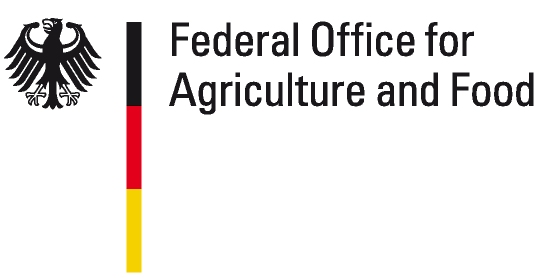Estimated Postharvest Losses (%) 2003 - 2017
The figures quoted in the tables below are estimates of cumulative weight loss from production incurred during harvesting, drying, handling operations, farm storage, transport and market storage. The loss values for each link in the postharvest chain are taken from the scientific literature and are modified by several seasonal factors that vary from year to year and are submitted by the APHLIS network. More details can be found in the ‘Understanding APHLIS’ manual and the ‘Weight Loss Review’ article.
The first loss table gives a regional weighted average PHL by crop. By clicking on the various country links it is possible to see the PHL by crop for country and then for each province. By clicking on a provincial loss figures it is possible to display the key data used in the calculation, including the seasonal data. The figures used for estimating the PHLs are displayed and a quality assessment is given of these figures as to whether they are specific to the cereal type, farm type and climate in question and the bibliographical source of the data can also be traced in a full reference list.
for Rice in : Guinea-Bissau
Provinces of Guinea-Bissau
Click on a loss figure in the table below to see in detail how the figure was derived. Send us your comments if you have the feeling that the underlying data and assumptions could be improved.
Please sent your comments to info(at)phlosses.net.
| Back | ||||||||||||||||||||||
|---|---|---|---|---|---|---|---|---|---|---|---|---|---|---|---|---|---|---|---|---|---|---|
| Province | 1996 | 1997 | 1998 | 1999 | 2000 | 2001 | 2002 | 2003 | 2004 | 2005 | 2006 | 2007 | 2008 | 2009 | 2010 | 2011 | 2012 | 2013 | 2014 | 2015 | 2016 | 2017 |
| Bafat | 11.9 | 11.9 | 11.9 | 11.9 | 11.9 | 11.9 | 11.9 | 11.9 | 11.9 | 11.9 | 11.9 | 11.9 | 11.9 | 11.9 | 11.9 | 11.9 | 11.9 | - | - | - | - | - |
| Biombo | 11.9 | 11.9 | 11.9 | 11.9 | 11.9 | 11.9 | 11.9 | 11.9 | 11.9 | 11.9 | 11.9 | 11.9 | 11.9 | 11.9 | 11.9 | 11.9 | 11.9 | - | - | - | - | - |
| Bissau | - | - | - | - | - | - | - | - | - | - | - | - | 11.9 | 11.9 | 11.9 | 11.9 | 11.9 | - | - | - | - | - |
| Bolama/Bijagos | 11.9 | 11.9 | 11.9 | 11.9 | 11.9 | 11.9 | 11.9 | 11.9 | 11.9 | 11.9 | 11.9 | 11.9 | 11.9 | 11.9 | 11.9 | 11.9 | 11.9 | - | - | - | - | - |
| Cacheu | 11.9 | 11.9 | 11.9 | 11.9 | 11.9 | 11.9 | 11.9 | 11.9 | 11.9 | 11.9 | 11.9 | 11.9 | 11.9 | 11.9 | 11.9 | 11.9 | 11.9 | - | - | - | - | - |
| Gab | 11.9 | 11.9 | 11.9 | 11.9 | 11.9 | 11.9 | 11.9 | 11.9 | 11.9 | 11.9 | 11.9 | 11.9 | 11.9 | 11.9 | 11.9 | 11.9 | 11.9 | - | - | - | - | - |
| Oio | 11.9 | 11.9 | 11.9 | 11.9 | 11.9 | 11.9 | 11.9 | 11.9 | 11.9 | 11.9 | 11.9 | 11.9 | 11.9 | 11.9 | 11.9 | 11.9 | 11.9 | - | - | - | - | - |
| Quinara | 11.9 | 11.9 | 11.9 | 11.9 | 11.9 | 11.9 | 11.9 | 11.9 | 11.9 | 11.9 | 11.9 | 11.9 | 11.9 | 11.9 | 11.9 | 11.9 | 11.9 | - | - | - | - | - |
| Tombali | 11.9 | 11.9 | 11.9 | 11.9 | 11.9 | 11.9 | 11.9 | 11.9 | 11.9 | 11.9 | 11.9 | 11.9 | 11.9 | 11.9 | 11.9 | 11.9 | 11.9 | - | - | - | - | - |
| Back | ||||||||||||||||||||||
Estimated Postharvest Losses (t) 2003 - 2017
| Back | ||||||||||||||||||||||
|---|---|---|---|---|---|---|---|---|---|---|---|---|---|---|---|---|---|---|---|---|---|---|
| Province | 1996 | 1997 | 1998 | 1999 | 2000 | 2001 | 2002 | 2003 | 2004 | 2005 | 2006 | 2007 | 2008 | 2009 | 2010 | 2011 | 2012 | 2013 | 2014 | 2015 | 2016 | 2017 |
| Bafat | 83 | 84 | 65 | 50 | 39 | 30 | 23 | 18 | 14 | 11 | 8 | 6 | 2325 | 3175 | 3649 | 3467 | 3934 | - | - | - | - | - |
| Biombo | 25 | 30 | 36 | 42 | 50 | 60 | 71 | 85 | 101 | 121 | 144 | 1153 | 3312 | 1392 | 1323 | 873 | 990 | - | - | - | - | - |
| Bissau | - | - | - | - | - | - | - | - | - | - | - | - | 4766 | 357 | 357 | 453 | 477 | - | - | - | - | - |
| Bolama/Bijagos | 50 | 54 | 58 | 63 | 67 | 72 | 78 | 83 | 90 | 96 | 104 | 111 | 468 | 453 | 543 | 515 | 585 | - | - | - | - | - |
| Cacheu | 302 | 350 | 406 | 471 | 545 | 632 | 733 | 850 | 985 | 1142 | 1324 | 1535 | 3044 | 4545 | 4241 | 3350 | 3801 | - | - | - | - | - |
| Gab | 35 | 108 | 82 | 63 | 48 | 36 | 28 | 21 | 16 | 12 | 9 | 12 | 2470 | 2897 | 4160 | 3952 | 4484 | - | - | - | - | - |
| Oio | 656 | 667 | 679 | 691 | 703 | 715 | 727 | 740 | 753 | 766 | 780 | 793 | 1860 | 4713 | 4915 | 3939 | 4469 | - | - | - | - | - |
| Quinara | 33 | 10 | 9 | 9 | 8 | 8 | 7 | 7 | 7 | 6 | 6 | 95 | 3312 | 1464 | 2059 | 1678 | 1904 | - | - | - | - | - |
| Tombali | 7 | 28 | 23 | 19 | 15 | 13 | 10 | 8 | 7 | 6 | 5 | 4 | 3494 | 2901 | 3565 | 2652 | 3009 | - | - | - | - | - |
| Back | ||||||||||||||||||||||
Weighted average
- Country : Guinea-Bissau
- Province : Cacheu
- Climate : Tropical savanna (Aw)
- Year : 2000
- Crop : Rice
| Annual production and losses | ||
|---|---|---|
| tonne | % | |
| Production | 4578 | 100 |
| Grain remaining | 4033 | 88.1 |
| Lost grain | 545 | 11.9 |
| Seasonal production and losses | |||||||
|---|---|---|---|---|---|---|---|
| Season | Farm Type | Production (t) | Remaining (t) | Losses (t) | Production (%) | Remaining (%) | Losses (%) |
| 1 | small | 4578 | 4033 | 545 | 100.0 | 88.1 | 11.9 |
| Seasonal: | 4578 | 4033 | 545 | 100.0 | 88.1 | 11.9 | |
NB Annual averages are a weighted average of the seasons
PHL (%) Calculation
| PHL (%) Calculation: Season: 1 Farm Type: small | |||||
|---|---|---|---|---|---|
| Grain marketed within the first three months after harvest (%) | no data | If data is missing (no data) it is assumed that for subsistence farmers all grain is stored whereas for commercial farmers all grain is marketed.
Note: Figures in this table are farm type specific (small or large farms). The value Grain marketed within the first three months after harvest (%) is used to determine the percentage of total production that is stored and marketed by this type of farm in this particular season (Season 1, Season 2 etc). The calculation only considers the portion that is produced by this type of farm. Consequently, the figures below for Stored (%) and Marketed (%) will only add up to 100% if all grain in a particular season is produced on this farm type. Otherwise the corresponding percent figures for the other farm type, in the same season, must be included to arrive at a sum of 100%. |
|||
| Rain at harvest | no data | If weather is damp at harvest, leading to exceptional mould damage to the crop, then the value is yes and the Harvesting/field drying losses figure in the PHL profile is replaced by 16.3%. |
|||
| Storage duration (months) | no data | Effect of storage duration:
|
|||
| Larger Grain Borer | no data |
If the crop is maize and the value is yes then the Farm storage loss figure in the PHL profile is multiplied by 2. |
|||
| Destination | Stored (%) | Marketed (%) | |||
| 100 | 0 | ||||
| Stages | PHL profile (adjusted) | Remaining grain | Loss increment | Remaining grain | Loss increment |
| Harvesting/field drying | 4.4 | 95.6 | 4.4 | 0 | 0 |
| Platform drying | 0 | 95.6 | 0 | 0 | 0 |
| Threshing and Shelling | 3.1 | 92.6 | 3 | 0 | 0 |
| Winnowing | 2.5 | 90.3 | 2.3 | 0 | 0 |
| Transport to farm | 1.3 | 89.2 | 1.1 | 0 | 0 |
| Farm storage | 1.2 | 88.1 | 1.1 | 0 | 0 |
| Transport to market | 1 | 88.1 | 0 | 0 | 0 |
| Market storage | 2.7 | 88.1 | 0 | 0 | 0 |
| Total | 88.1 | 11.9 | 0 | 0 | |
PHL profile: Data quality display and references to sources
PHL profiles are used to calculate losses, each profile consists of a series of values, one for each link in the postharvest chain. Each value in the PHL profile is formed from the average of several figures drawn from the available literature. All these figures are shown individually in the tables below. Separate PHL profiles are given for small farms and large (commercial) farms. The reliability of each datum contributing to the calculation of each PHL profile value is displayed in the table below. The assessment is based on how specific the figure is to the situation in which it is being used. To do this, each figure is assessed according to whether it is from the same Cereal type (maize, rice etc), same Climate type (is from same Koeppen code), same Farm type (from a small farm or large commercial farm), and if the Method of loss assessment was an actual measurement of loss or was a questionnaire survey or guesstimate. The result of the assessment is indicated using the red/0 and green/1 system as follows -
0 A datum used in the calculation of a PHL profile value is not specific to this situation or is from a questionnaire survey or a guesstimate, i.e. is not measured.
1 A datum used in the calculation of a PHL profile value is specific to this situation or is measured.
PHL profile figures based on more 'green/1' data are considered to be more reliable than those based on more 'red/0' data. Against each PHL profile value the number of 'red/0' and 'green/1' assessments is averaged, and displayed in bold, to give a general assessment of the value. Frequently some parts of the profile are more reliable than others, especially those where more loss data are available from the literature.

 English
English
 French
French





